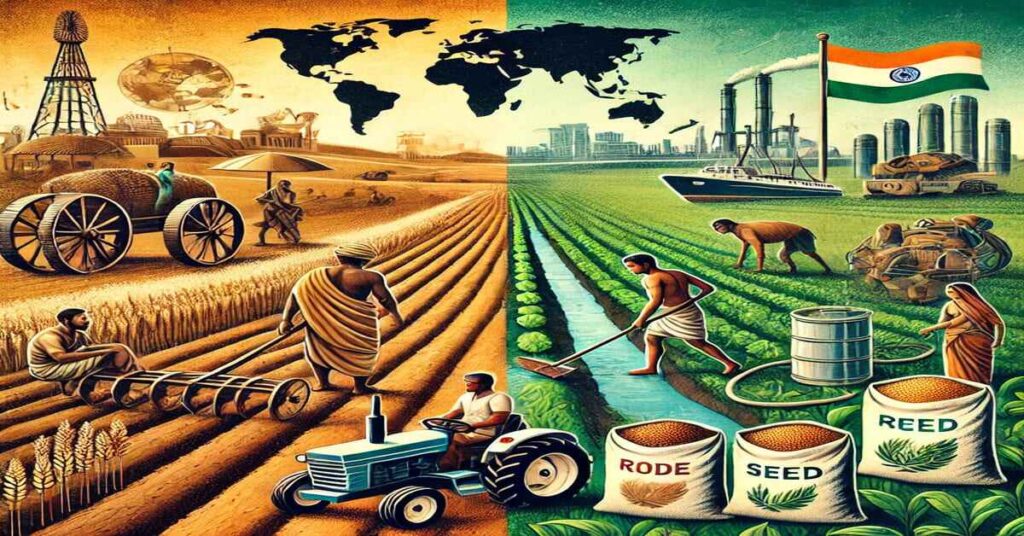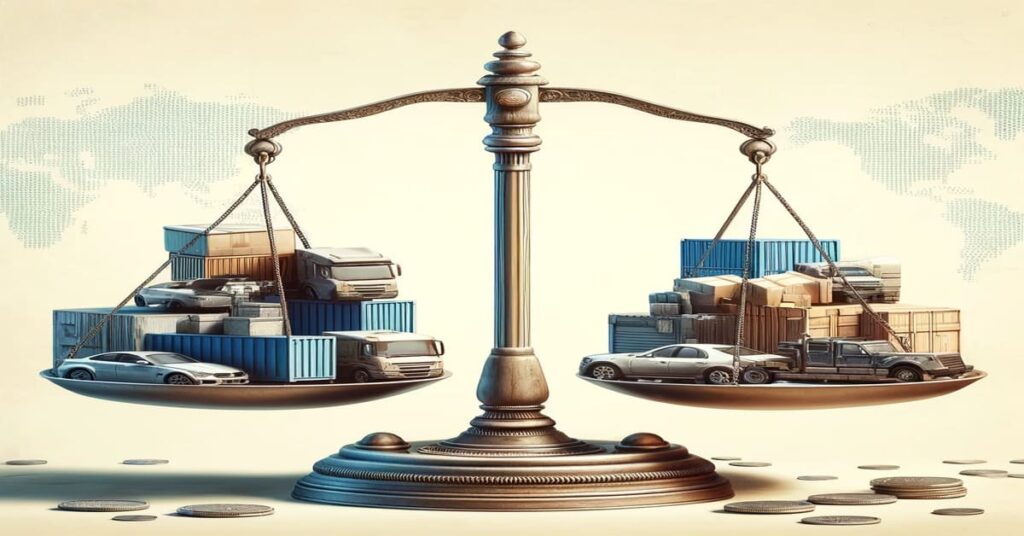Globalization is a concept introduced in the 20th Century. But it is not a new concept for the world, because since ancient times ideas, goods, services and personnels were exchanged between Countries as well as between continents. Exchange of tangibles and intangibles always have some effects. Here we are going to discuss Impact of Globalization on Indian Economy.
We have heard a phrase: “The World is Shrinking”. It is not like Big Bang Theory, where the world is expanding. It is about the reach of human beings. With the advancement of technology, humans can reach any part of the surface of the earth. With the advent of the internet thoughts are traveling with the speed of light.
Globalization
Theodore Levitt, German-born American economist, has coined the term globalization in a 1983 article titled “The Globalization of Markets”.
Globalization means international exchange of Ideas, personnel, goods and Services. Earlier the exchange was minimal and time consuming and now these exchanges have taken pace. Now local things are becoming universal. On the other hand, universal things become local.
Initially it was understood with a market / economic perspective and now it entered into various spheres of human as well as Nation’s life.
Globalization And Its Impact
After the second world war various International Organisations like the United Nation, World Bank etc came into picture to make the world socio-economically and politically stable. So these impacted the Laws and external affairs of the Nation.
Social media is also an instrument of globalization. Through these new connections have been developed, which formed a new community.
With globalization the interference on internal matters of a country also has been increased. Which impacts the sovereignty of a country.
Now let us discuss the Impact of globalization on Indian Economy.
Read About 5 Philosophies of Indian Constitution
Impact of Globalization on Indian Economy
As we all know, the concept of Globalization was very firstly introduced for economic ideas. So, here we are going to discuss 10 important impact of Globalization on Indian Economy.
Acceleration to Economic Growth
Economic growth includes quantitative indexes like Gross Domestic Product (GDP). Globalization added investments in the form of Foreign Direct Investments (FDIs) and Foreign Institutional Investments (FIIs) to the Indian Economy. Increase in trade and commerce also boosted up economic growth due to opening up of Markets.
Rise of the Service Sector
Presently, the service sector contributes over 50% of India’s GDP. Globalization bought Information and Communication Technology (ITC) which accelerated the service sector. India is the 7th largest service exporter of the world. Present contribution of India on service export is about 4.5% which is 9 times the contribution before 20 years. Urban centres like Pune, Bangalore, Mumbai etc. came up with service sector hubs.
Employment Opportunities
Globalization came up with Foreign Direct Investment (FDI), companies like Amazon, McDonalds, KFC, Hyundai etc. came up with new work culture and new employment opportunities. Globalization bought both organized and unorganized employment opportunities. Unorganized sector looks like a result of the cascading effect of Globalization
Improved Infrastructure
The impact of Globalization on Indian economy also includes the development of Infrastructure. Like development of Airports, Railways / Metro rail, Roadways, Waterways etc under the transport sector. Development of communication networks through Mobile Phones and Internet, TV and Radio Communication channels etc.
On the other hand various Private Companies also set up their offices and technology plants in India which also come under the Infrastructure development.
Consumer Choices
On one hand, Globalization brought opportunities for Producers in the form of open markets and exports. On the other hand it also brought various choices for the consumers. For example companies like Apple and Samsung provide great choices for the consumers of Mobile Phones.
Consumer’s choice also brings competition between various businesses. Which benefits the consumer in the form of quality of Product and also lowers the prices of Product. Globalization also helped in ending the monopoly of companies throughout the world.
Enhanced Technology and Innovation
Globalization expanded the reach of individuals, now individuals have the choice to opt for the best technology for his businesses or for consumables. For example for the promotion of business worldwide individuals can use various Social Media platforms like Facebook, Instagram etc.
The vast reach of technology helped in various sectors like increase in production in Agriculture, Animal Husbandry and various Agricultural allied activities. Technology also reduced the gestation period particularly in the agriculture sector.
Globalization also helped in technology transfer particularly in the missions like Outer Space, Defence, Atomic Research etc. These initiatives also help in new forms of Innovation. And through Globalization these technology transfers are potential revenue generation.
Agriculture and Rural Impact

Impact of globalization on the Indian economy was first seen in the Agriculture Sector during the Green Revolution, where HYV Seeds, Fertilizers, Pesticides and Technology were transferred to India and India became self-reliant in Agriculture.
A cascading effect has been seen through this Green revolution. The Agricultural Community became financially empowered, and various Farmers Organizations came into picture. Now, the farmers became politically empowered.
Globalization supplies various essentials to the agricultural and allied sectors. It not only raised the production but also made the rural community competent enough to fight the competition at global level.
Liberalization and Policy Reforms
Liberalization as an economic term means, easing the norms, rules and regulation and making a friendly environment for Businesses. These policy actions were taken under Narsimha Rao’s Government.
During the 1990s huge policy reforms were taken by the government which are known as LPG (Liberalization, Privatization and Globalization) reforms. Liberalization is linked with Privatization and Globalization, where Disinvestment involved the private players and Currency Convertibility allowed the Global Players to take part in the Indian Economy.
Economic Inequality
Impact of Globalization on Indian Economy is not always Positive, it also comes with some unforeseen impacts like Economic Inequality.
There is always a dialectics between haves and have not. The one who is able to amplify the trends comes under have and rest come under have nots. The quantity of people who benefited from Globalization is very low with respect to not benefited. So, inequality becomes visible.
Globalization scaled up the unorganized sector and the laborers which are participating in it suffered from lower wages, unhealthy leaves, struggled for Food and Shelters and were not able to secure a future for themselves.
This Inequality can easily be represented in Lorenz Curve.
Trade Deficits

Globalization is an opportunity for people of each country of the Globe. The Country which produces quality and quantity as well always remains in profit.
In the case of India with respect to international Trade the impact of globalization on Indian economy is negative. Because we import more than we export.
Trade deficit has many reasons like we are unable to produce quality products, much of the product we produce is used in India itself, with some countries like Pakistan we don’t have appropriate Trade Agreements etc.
Conclusion
Impact of Globalization on Indian Economy is fruitful at some places and at some places it is useless or ineffective. The constraints may be Technological, Institutional or may be Cultural.
We have to optimize our products, contents and services with respect to technology and the demands so that we can compete on the global market and maximize the opportunity of Globalization.
